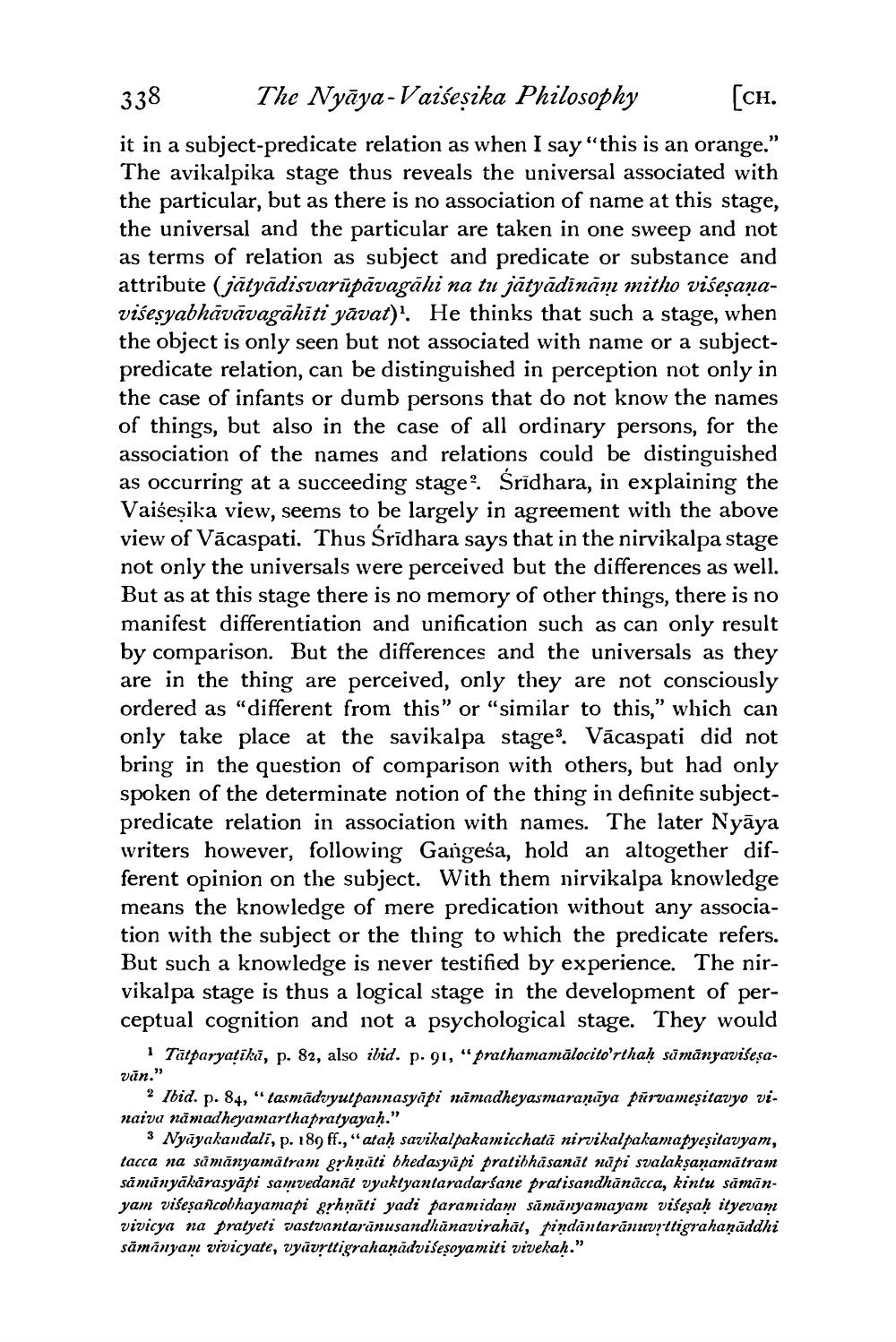________________
338
The Nyāya-Vaišeșika Philosophy
(CH.
it in a subject-predicate relation as when I say "this is an orange." The avikalpika stage thus reveals the universal associated with the particular, but as there is no association of name at this stage, the universal and the particular are taken in one sweep and not as terms of relation as subject and predicate or substance and attribute (jätyādisvarūpāvagāhi na tu jātyādinām mitho višeșanavišesyabhāvāvagāhīti yāvat). He thinks that such a stage, when the object is only seen but not associated with name or a subjectpredicate relation, can be distinguished in perception not only in the case of infants or dumb persons that do not know the names of things, but also in the case of all ordinary persons, for the association of the names and relations could be distinguished as occurring at a succeeding stage? Sridhara, in explaining the Vaišeșika view, seems to be largely in agreement with the above view of Vācaspati. Thus Śrīdhara says that in the nirvikalpa stage not only the universals were perceived but the differences as well. But as at this stage there is no memory of other things, there is no manifest differentiation and unification such as can only result by comparison. But the differences and the universals as they are in the thing are perceived, only they are not consciously ordered as “different from this" or "similar to this," which can only take place at the savikalpa stage: Vācaspati did not bring in the question of comparison with others, but had only spoken of the determinate notion of the thing in definite subjectpredicate relation in association with names. The later Nyāya writers however, following Gangeśa, hold an altogether different opinion on the subject. With them nirvikalpa knowledge means the knowledge of mere predication without any association with the subject or the thing to which the predicate refers. But such a knowledge is never testified by experience. The nirvikalpa stage is thus a logical stage in the development of perceptual cognition and not a psychological stage. They would
Tātparyaţikā, p. 82, also ibid. p. 91, “prathamamālocito'rthah sūmāngavisesazoãn.”
2 Ibid. p. 84, "lasmādvyutpannasyāpi nimadheyasmaraṇāya pūrvameșitavyo vi. naiva nămadheyanarthapratyayah."
3 Nyāyakandali, p. 189ff., "ataḥ savikalpakamicchatā nirvikalpakamapyeşilavyam, tacca na sumanyamātram grhņāti bhedasyā pi pratibhāsanāt nūpi svalaksanamatram så manyakärasyāpi samvedanāt vyaktyantaradarśane pratisandhānūcca, kintu samanyam višeşancobhayamapi srhnāti yadi paramidam sānānyamayam višeşah ityevam vivicya na pratyeti vastvantarānusandhānavirahāt, pindantarānuorttigrahaņāddhi samanyam vivicyate, vyūvrttigrahanādvisesoyamiti vivekah."




